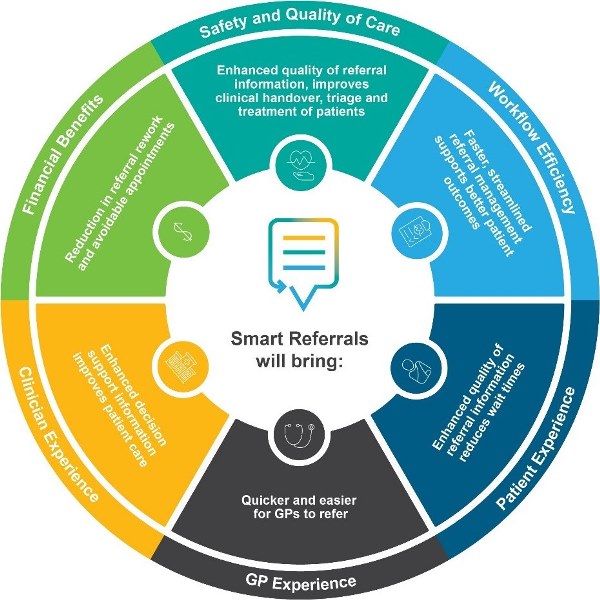Ambulatory Referral Meaning: Understanding the Process and Importance
In the healthcare industry, ambulatory referrals play a crucial role in patient care coordination and ensuring the delivery of appropriate medical services. This article aims to provide a comprehensive understanding of the meaning of ambulatory referrals, their process, and their significance in healthcare systems.
1. What is an Ambulatory Referral?

What is an Ambulatory Referral
An ambulatory referral refers to the process of transferring a patient's care from one healthcare provider to another, typically from a primary care physician to a specialist. It involves the exchange of patient information, medical records, and relevant diagnostic test results to ensure continuity and appropriate management of the patient's condition.
2. The Process of Ambulatory Referrals

The Process of Ambulatory Referrals
2.1 Initiating the Referral
The ambulatory referral process begins when a primary care physician determines that a patient requires specialized care beyond their scope of practice. The physician assesses the patient's condition and determines the appropriate specialist or healthcare facility to refer the patient to.
2.2 Communicating the Referral
Once the decision to refer is made, the primary care physician communicates the referral to the receiving specialist or healthcare facility. This can be done through various means, including electronic referral systems, fax, or secure messaging platforms. The referral should include relevant medical information, reason for referral, and any specific concerns or expectations.
2.3 Specialist Evaluation
Upon receiving the referral, the specialist evaluates the patient's condition and determines the most suitable course of action. This may involve reviewing the provided medical records, conducting additional diagnostic tests, or scheduling an appointment for a comprehensive evaluation.
2.4 Patient Scheduling and Follow-up
After the specialist evaluation, the patient is scheduled for an appointment to discuss the findings, treatment options, and further management. The specialist communicates the results and treatment recommendations back to the referring physician, ensuring coordinated care and continuity.
3. Importance of Ambulatory Referrals
3.1 Coordinated Care
Ambulatory referrals promote coordinated care by facilitating seamless communication and information exchange between healthcare providers. This ensures that all involved parties are aware of the patient's medical history, ongoing treatments, and future care plans.
3.2 Access to Specialized Care
Ambulatory referrals enable patients to access specialized care that goes beyond the scope of primary care. By involving specialists who have in-depth knowledge and expertise in specific medical conditions, patients can receive tailored treatments and interventions, leading to improved health outcomes.
3.3 Optimal Resource Utilization
Referring patients to the appropriate specialists helps optimize the allocation of healthcare resources. Primary care physicians can focus on managing general health concerns, while specialists can address complex or specialized conditions, thereby maximizing the efficiency of the healthcare system.
4. Challenges and Solutions in Ambulatory Referrals
4.1 Communication Barriers
One of the challenges in ambulatory referrals is the potential for communication breakdowns between referring physicians and specialists. To address this, implementing electronic referral systems and secure messaging platforms can enhance communication efficiency, ensuring timely exchange of information.
4.2 Long Waiting Times
Patients often face extended waiting times for specialist appointments, leading to delayed care. To overcome this challenge, healthcare systems can implement strategies such as triage protocols, telemedicine consultations, and better appointment management to minimize waiting times and improve access to specialized care.
Ambulatory referrals are an essential component of patient care coordination, allowing primary care physicians to collaborate with specialists to provide comprehensive and specialized healthcare services. By understanding the process and significance of ambulatory referrals, healthcare systems can enhance the quality of care, optimize resource allocation, and improve patient outcomes. Effective communication, timely referrals, and efficient appointment scheduling are vital elements in ensuring the success of ambulatory referrals.